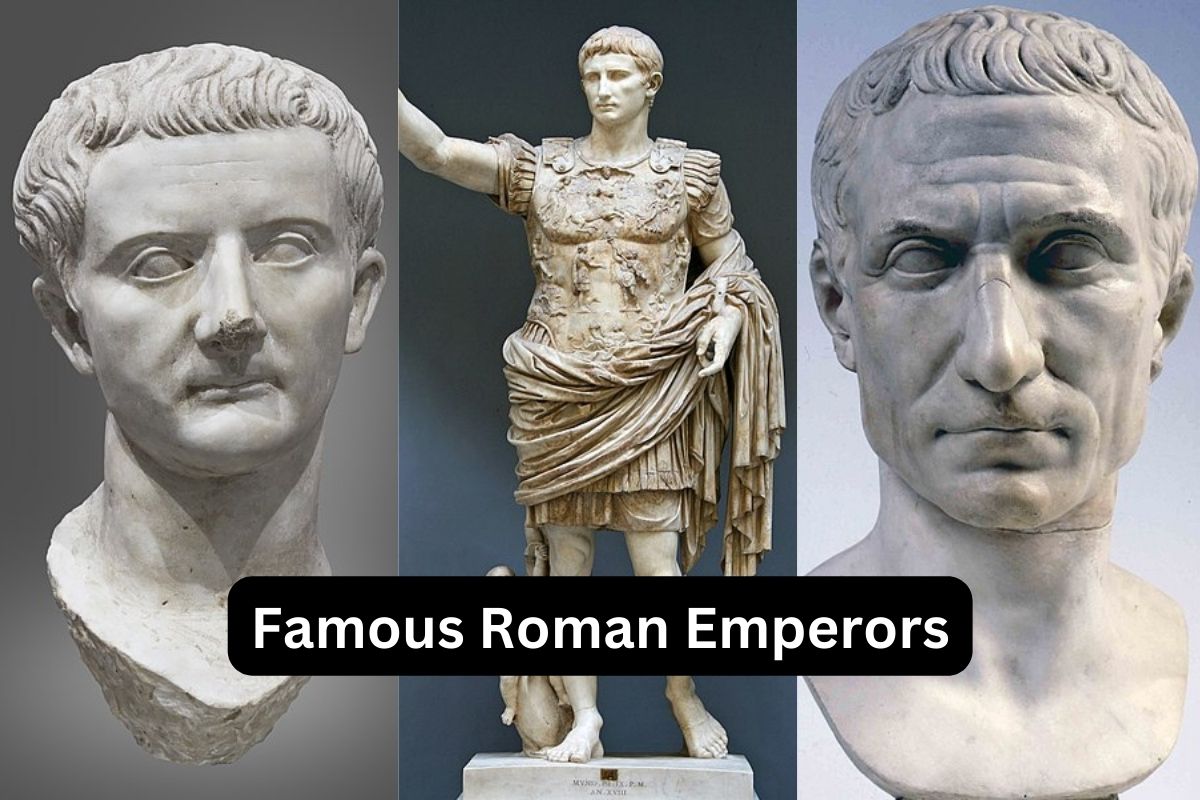The Roman Empire was one of the most powerful and influential civilizations in history, and its emperors played a crucial role in shaping the empire’s history and legacy.
From Julius Caesar to Constantine XI, the Roman emperors ruled over an empire that spanned much of Europe, the Middle East, and North Africa, and their reigns were marked by military conquests, political intrigue, and cultural achievements.
Some emperors are remembered for their successes and accomplishments, while others are infamous for their cruelty and excesses.
Together, they represent a fascinating chapter in human history and continue to inspire and captivate people to this day.
Famous Roman Emperors
1. Augustus
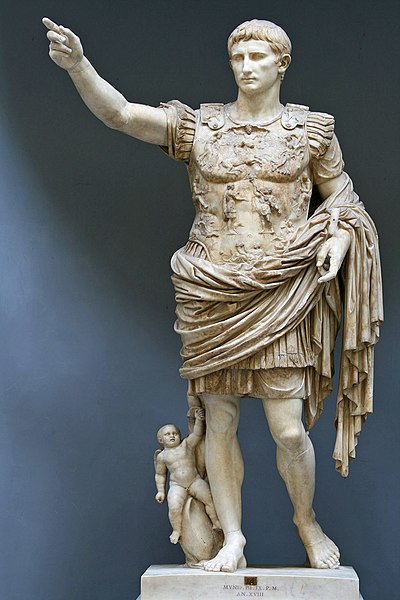
Augustus, born Gaius Octavius, was the first emperor of Rome and one of the most influential figures in Roman history. He was the grand-nephew of Julius Caesar, and after Caesar’s assassination in 44 BC, he became Caesar’s adopted son and heir.
Augustus emerged victorious from a period of civil war and established a new system of government known as the Roman Empire, which replaced the Roman Republic.
During his reign, Augustus brought peace and stability to the empire after decades of civil war and political unrest. He reformed the Roman government, military, and legal system, and oversaw a period of economic prosperity and cultural flourishing known as the Pax Romana (Roman Peace).
Also Read: Ancient Romans Facts
Augustus was also a great patron of the arts, and under his rule, Roman literature, art, and architecture flourished.
Augustus was a master of political propaganda, and he carefully crafted an image of himself as a wise and benevolent ruler who put the interests of Rome above his own.
He was hailed as a god by his subjects, and his reign set the standard for Roman emperors who followed. Augustus died in 14 AD, having ruled for over 40 years, and his legacy as the founder of the Roman Empire is still felt to this day.
2. Julius Caesar

Julius Caesar was a prominent Roman general, politician, and author who played a crucial role in the transformation of the Roman Republic into the Roman Empire. Born in 100 BC, Caesar was a skilled military commander who conquered Gaul (modern-day France) and became one of the most powerful men in Rome.
In 49 BC, Caesar famously crossed the Rubicon River with his army, a move that effectively began a civil war between Caesar’s supporters and the forces of the Roman Senate. Caesar emerged victorious, and in 44 BC, he was declared “dictator for life” by the Senate.
Also Read: Accomplishments of Julius Caesar
Caesar’s rule was marked by sweeping reforms, including the reorganization of the Roman calendar and the creation of the Julian calendar, which is the basis for the modern calendar. He also introduced social and political reforms, including the expansion of citizenship and the granting of land to veterans.
However, Caesar’s reign was cut short when he was assassinated by a group of senators on March 15, 44 BC. His death plunged Rome into another period of civil war, and eventually led to the rise of Augustus and the Roman Empire.
Also Read: Roman Emperor Timeline
Caesar was also a prolific author and is known for his Commentaries on the Gallic War, which is still studied today for its insights into Roman military tactics and culture. His legacy as a military commander, political reformer, and author has made him one of the most famous and enduring figures in Western history.
3. Tiberius
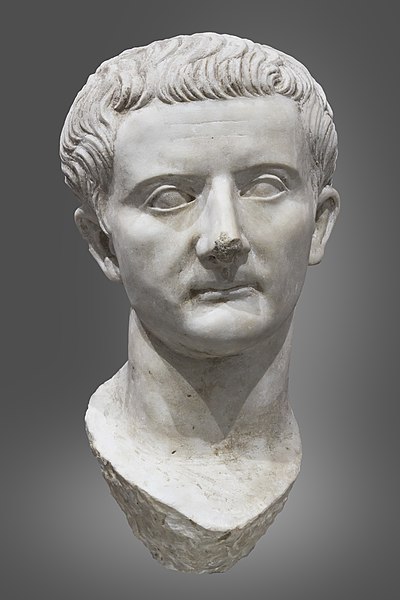
Tiberius was the second Roman Emperor, succeeding Augustus and ruling from 14 AD to 37 AD. Tiberius was born into a prominent Roman family and was adopted by Augustus, who designated him as his heir. Tiberius was a successful general and served in a number of military campaigns before becoming emperor.
He was known for his reclusive nature and authoritarian rule. He withdrew from public life and spent much of his time on the island of Capri, leaving the day-to-day administration of the empire to his advisors. He was also known for his harsh treatment of political opponents and his suppression of dissent.
Also Read: Accomplishments of Tiberius
Despite his reputation as a tyrant, Tiberius oversaw a period of relative stability and prosperity in the Roman Empire. He continued many of the policies of his predecessor Augustus, including expanding the empire’s borders and improving its infrastructure.
Tiberius’s reign was not without controversy, however. He was accused of a number of crimes, including treason and sexual misconduct, and his reign was marked by a series of political intrigues and power struggles.
Tiberius died in 37 AD, and his reign was followed by a period of instability known as the Year of the Four Emperors. Despite his reputation as a reclusive and authoritarian ruler, Tiberius played an important role in shaping the early Roman Empire and his reign left a lasting impact on Roman history.
4. Caligula
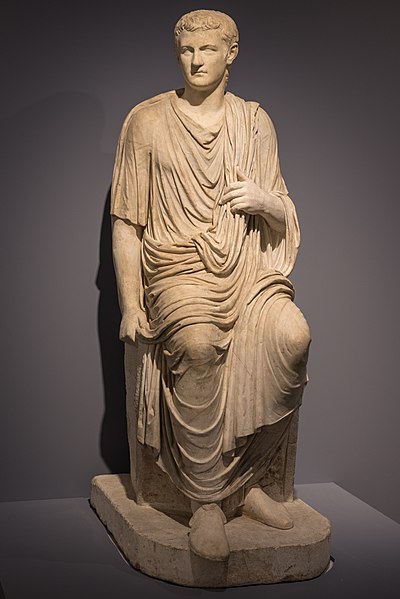
Caligula was the third Roman Emperor, ruling from 37 AD to 41 AD. He was born Gaius Julius Caesar Germanicus in 12 AD, and his nickname “Caligula” means “little boot” in Latin, which was given to him by soldiers because he would wear tiny military boots as a child.
Caligula’s reign was marked by a series of bizarre and scandalous actions. He was known for his extravagance and cruelty, and he reportedly indulged in a wide range of vices, including incest and orgies. He also declared himself a god and demanded that he be worshipped as such, which caused a great deal of controversy among the Roman people.
Also Read: Accomplishments of Emperor Caligula
Caligula’s rule was also marked by a number of political intrigues and power struggles. He had a contentious relationship with the Roman Senate, and his assassination in 41 AD was the result of a conspiracy involving members of the imperial guard and the Senate.
Despite his infamous reputation, it is worth noting that many of the stories about Caligula come from later sources that may be exaggerated or fabricated. Nevertheless, Caligula’s reign is widely considered to be one of the most chaotic and scandalous in Roman history, and his legacy remains controversial to this day.
5. Nero
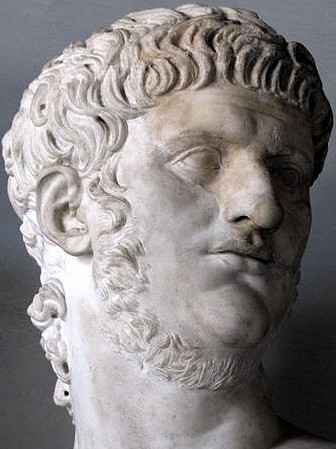
Nero was the fifth Roman Emperor, ruling from 54 AD to 68 AD. He was born in 37 AD and was the last of the Julio-Claudian dynasty to rule over the Roman Empire. Nero’s reign was marked by a number of controversies, and he is often remembered for his cruelty and excesses.
One of the most infamous events of Nero’s reign was the Great Fire of Rome in 64 AD, which destroyed much of the city. Nero was widely blamed for the fire and is said to have played his lyre while watching the city burn.
Also Read: Facts About Nero
In response to the criticism, Nero blamed the fire on the Christian minority in Rome and began a brutal persecution of Christians, which earned him further condemnation from historians.
Nero was also known for his extravagance and his love of the arts. He was a skilled musician and actor, and he enjoyed performing in public. He also commissioned a number of public works, including the Domus Aurea, a lavish palace complex that was the largest and most ornate building in Rome.
Also Read: Accomplishments of Emperor Nero
However, Nero’s rule was marked by a number of political intrigues and power struggles, and he faced numerous challenges to his authority throughout his reign. In 68 AD, he was declared a public enemy by the Senate, and he committed suicide later that year.
Despite his infamous reputation, Nero was also remembered for his patronage of the arts and his efforts to promote cultural achievements in Rome. Nevertheless, his reign is widely considered to be one of the most controversial and tumultuous in Roman history.
6. Trajan
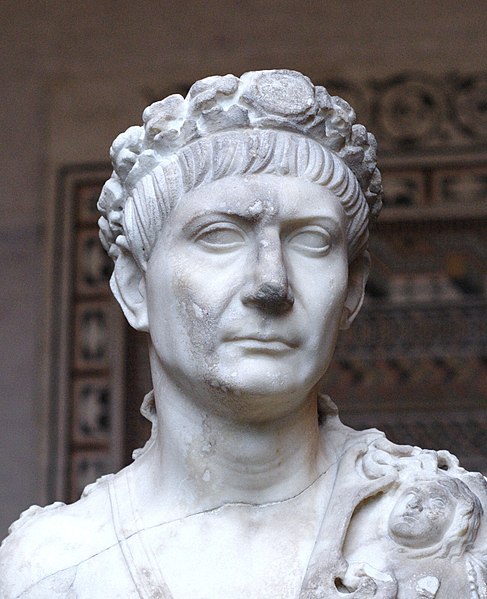
Trajan was the 13th Roman Emperor, ruling from 98 AD to 117 AD. He was born in 53 AD in modern-day Spain and was the first non-Italian emperor in Roman history. Trajan was a successful military commander who expanded the empire to its greatest extent and oversaw a period of great prosperity.
Trajan’s reign was marked by a number of military conquests and building projects. He launched several successful campaigns against the Dacians, a tribe in modern-day Romania, and in 106 AD, he annexed the kingdom of Nabataea, which included the city of Petra in modern-day Jordan.
Also Read: Accomplishments of Trajan
He also oversaw a number of public works projects, including the construction of the famous Trajan’s Column in Rome, which depicts scenes from his military campaigns.
Trajan was also known for his social and economic policies. He introduced a number of reforms to the Roman legal system and expanded the rights of Roman citizens. He also oversaw a period of economic growth and prosperity, and the Roman Empire reached its greatest extent during his reign.
Despite his successes, Trajan’s reign was not without controversy. His conquests and building projects were expensive, and he faced criticism for his heavy taxation and for his treatment of the Jews and Christians in the empire.
Trajan died in 117 AD, and his legacy as a successful military commander and reformer has made him one of the most famous and respected Roman emperors in history.
7. Hadrian
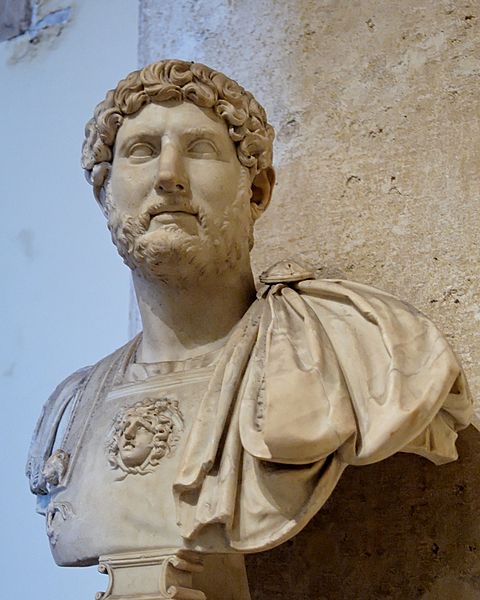
Hadrian was the 14th Roman Emperor, ruling from 117 AD to 138 AD. He was born in 76 AD in modern-day Spain and was the adopted son of Trajan, who designated him as his heir.
Hadrian’s reign was marked by a number of building projects and administrative reforms, and he is widely regarded as one of the most effective and efficient Roman emperors.
One of Hadrian’s most notable accomplishments was the construction of Hadrian’s Wall, a defensive fortification that spanned the width of northern Britain. He also oversaw the construction of a number of other public works projects, including the Temple of Venus and Roma in Rome and the Pantheon, a temple to all the gods.
Hadrian was also known for his administrative reforms. He reorganized the Roman government and military, and he introduced a number of new laws and policies to improve the lives of his subjects. He also traveled extensively throughout the empire, visiting almost every province and city, and his reign saw a period of relative peace and stability.
Despite his accomplishments, Hadrian’s reign was not without controversy. He faced criticism for his treatment of the Jews and for his suppression of a rebellion in Judaea. He also faced opposition from the Senate and from some members of the imperial court.
Hadrian died in 138 AD, and his legacy as a builder and reformer has made him one of the most respected and admired Roman emperors.
8. Marcus Aurelius
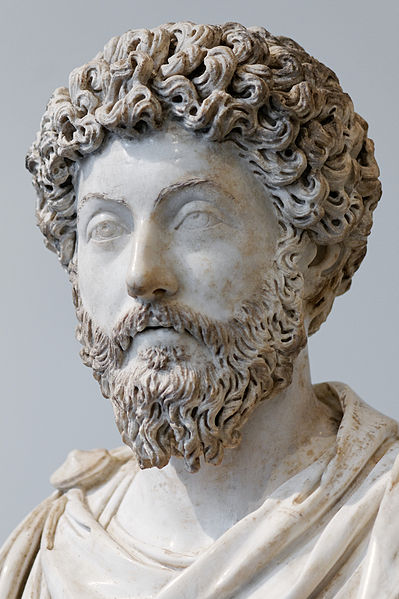
Marcus Aurelius was the 16th Roman Emperor, ruling from 161 AD to 180 AD. He was born in 121 AD in Rome and is widely regarded as one of the most important philosophers in Roman history. His reign was marked by a number of military campaigns and administrative reforms, and he is remembered as a just and wise ruler.
Marcus Aurelius was a Stoic philosopher who wrote extensively about the nature of power and the importance of self-control. His book, “Meditations,” is a collection of his thoughts and reflections on life, death, and the nature of the universe. It remains a popular work of philosophy to this day.
As emperor, Marcus Aurelius faced a number of challenges, including invasions by the Germanic tribes and the outbreak of a deadly plague in the empire. He is known for his military campaigns against the Parthians and the Germanic tribes, and for his efforts to reform the Roman legal system and improve the lives of his subjects.
Despite his reputation as a just and wise ruler, Marcus Aurelius faced criticism from some members of the Senate and from the Roman people. He also faced a number of personal tragedies, including the death of his wife and several of his children.
Marcus Aurelius died in 180 AD while on campaign in Europe, and his legacy as a philosopher-king and military commander has made him one of the most respected and admired Roman emperors.
9. Constantine the Great
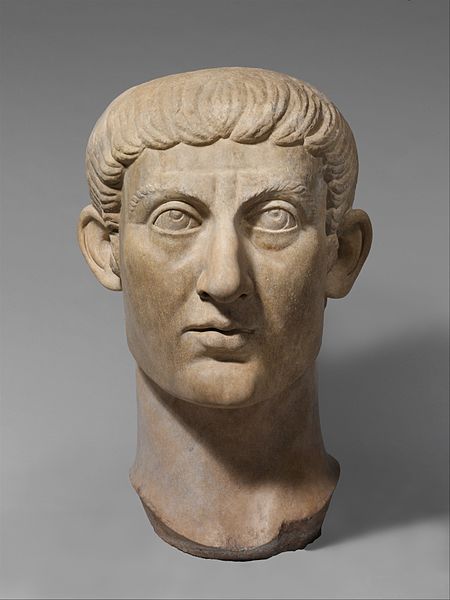
Constantine the Great was the 57th Roman Emperor, ruling from 306 AD to 337 AD. He was born in 272 AD in modern-day Serbia and was the son of the Roman general Constantius Chlorus. Constantine is best known for his role in the conversion of the Roman Empire to Christianity.
Early in his reign, Constantine fought a series of civil wars against rival claimants to the throne. In 312 AD, he famously had a vision of the Christian cross before a battle, and he is said to have attributed his victory to the intervention of the Christian God.
Constantine then became a patron of Christianity and is credited with playing a crucial role in the spread of the religion throughout the Roman Empire.
Constantine oversaw a number of important reforms and building projects during his reign. He introduced a new gold coin, the solidus, which remained in use for centuries. He also built a new capital city, Constantinople, which he intended to serve as a new center of power in the Eastern Roman Empire.
Despite his efforts to promote Christianity, Constantine’s reign was not without controversy. He was criticized by some Christians for his policy of religious tolerance, which they saw as a compromise with pagan traditions. He also faced a number of political and military challenges, including the rise of the Sassanid Empire in Persia.
Constantine died in 337 AD, and his legacy as the first Christian Roman Emperor has made him one of the most important figures in Christian history. His reforms and building projects helped to shape the Roman Empire and laid the foundation for the Byzantine Empire that followed.
10. Diocletian
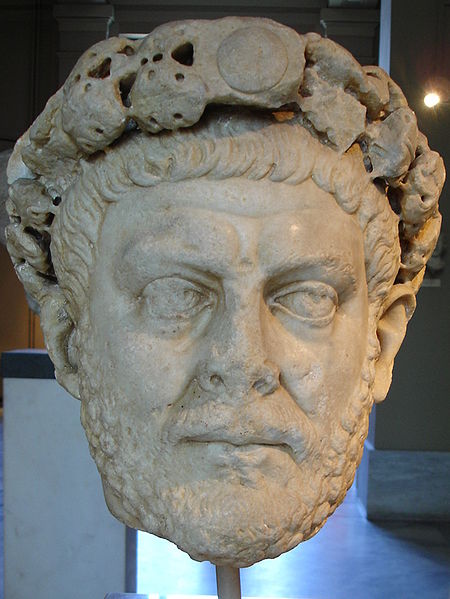
Diocletian was the 51st Roman Emperor, ruling from 284 AD to 305 AD. He was born in 244 AD in modern-day Croatia and rose to power as a military commander. Diocletian’s reign was marked by a number of political and economic reforms, and he is often credited with saving the Roman Empire from collapse.
One of Diocletian’s most significant reforms was the division of the Roman Empire into two halves, the Western Roman Empire and the Eastern Roman Empire. He appointed a co-emperor, Maximian, to rule over the Western half of the empire while he ruled over the Eastern half. This system, known as the Tetrarchy, helped to stabilize the empire and make it more efficient.
Diocletian also oversaw a number of economic reforms, including the introduction of a new currency system and the implementation of price controls. He also initiated a program of public works projects, including the construction of roads, bridges, and aqueducts.
Despite his accomplishments, Diocletian’s reign was not without controversy. He was known for his persecution of Christians, which included the destruction of Christian churches and the execution of Christian leaders. He also faced a number of military challenges, including invasions by Germanic tribes and conflicts with the Sassanid Empire in Persia.
Diocletian retired in 305 AD, becoming the first Roman Emperor to voluntarily step down from power. His legacy as a reformer and stabilizer of the Roman Empire has made him one of the most significant figures in Roman history.
